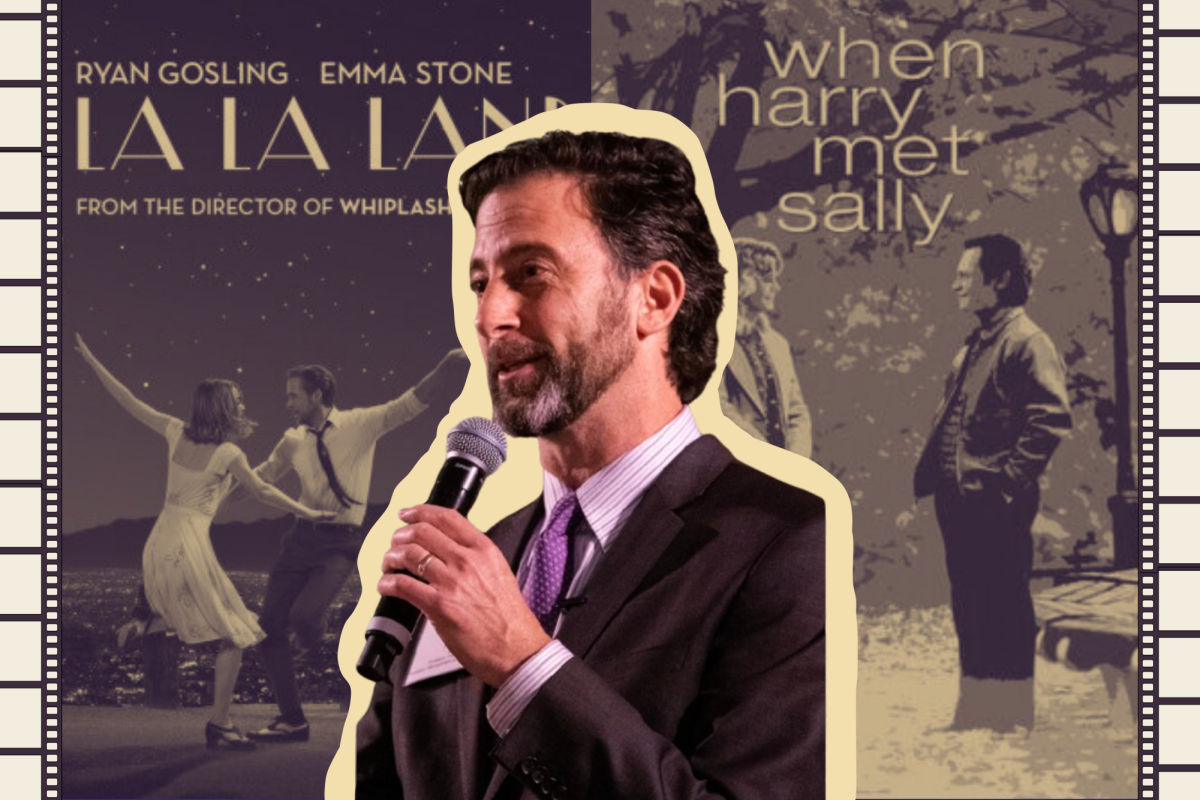Between teaching relationship science classes and directing the Relationships And Motivation Lab at Northwestern, psychology Prof. Eli Finkel takes on the role as Cupid’s aide, reaching a deeper understanding of relationships.
In 2017, he wrote a book titled “The All-or-Nothing Marriage” that focuses on the evolution of marriages.
With Paul Eastwick, a psychology professor at University of California, Davis, Finkel developed a podcast called “Love Factually,” where the two analyze romantic films through a scientific lens. The first two episodes of the podcast were released Sept. 25.
The Daily spoke with Finkel about his book, podcast and lab.
This interview has been lightly edited and condensed for clarity.
The Daily: What inspired your podcast?
Finkel: Most people don’t even know relationship science is a discipline, or that people have careers where they use the tools of science, evidence, studies, experiments and falsifiable hypotheses to understand something like love or sexual desire. So we thought this podcast could be like a Trojan Horse that we could sneak in a bunch of education for the masses that is oriented toward helping them understand what the state of the evidence is … We are also incorporating it into our classes.
The Daily: How does the portrayal of love in Hollywood films affect real-life relationships?
Finkel: I think it’s hit and miss. There are a range of ideas that these movies present, and some of them we think are more insightful. And by insightful, I mean aligned with the evidence as it exists thus far, and some of them are misleading. “10 Things I Hate About You” is among the movies that basically talks about some people being dateable and some people being undateable. The idea that there’s 10s and twos out there like, “Oh, bummer, you’re a two because your jawline is bad,” and therefore, it’s either surgery or a life of loneliness. Those messages are getting out there, and they’re doing actual harm … But most of the happiness in a relationship is not about finding a person who is a 10 but finding a person who was a 10 for you.
The Daily: What aspects in your book combine your marriage and your research?
Finkel: One of the major ideas that I developed is this idea that we can shoot for a particularly excellent marriage. The metaphor I used in the book was the top of Maslow’s hierarchy. We can try to have a marriage where we try to make each other self-actualized … A lesson I took from my life is that we can look to have one of those truly special marriages, but we need to recognize when to step off the gas a little. When (my wife and I) were first having kids, it wasn’t the right time to think ‘I should be able to invest just as much in the marriage as I was before.’ Calibrating our expectations and aspirations for marriage in light of what we’re able to achieve in the moment was a lesson I took from my life but distilled through relevant research.
The Daily: How does your book address divorce trends in the U.S.?
Finkel: Starting around 1980, the divorce rate has gone down, and it has actually plummeted among people with college degrees. The self-expressive era shattered traditional views on family life. Since 1980, we’ve increasingly built family structures and marriages that are more egalitarian. That is, it is understood that both of us have career aspirations, but both of us have nurturing aspirations, and it’s not like, ‘She does the diapering, and he does the wage earning …’ For that reason, the best marriages today are better than those of earlier eras because we’re connecting toward the top of Maslow’s hierarchy, something earlier generations didn’t even try to do.
The Daily: What recent research from RAMLAB has intrigued you?
Finkel: One recent finding is how different people make sense of the changes they make as a function of involvement in their relationship. Across a series of studies directed by Erin Hughes, a recent RAMLAB Ph.D. student, we found that people who are higher in attachment avoidance tend to perceive such change as self-loss.
The Daily: What’s next in your research?
Finkel: A lot of my interests these days focus on the psychology of political partisanship in the U.S. In the relationships space, our major emphasis focuses on conceptualizing relationships as microcultures. We’re exploring how each individual relationship develops its own language — inside jokes, stories, etc. — and how developing that culture strengthens the relationship.
Email: janellemella2027@u.northwestern.edu
Related Stories:
— Profs. Eli Finkel and Alexandra Solomon dig into science behind successful marriages
Profs. Eli Finkel and Alexandra Solomon dig into science behind successful marriages
— NU Declassified: Wildcats discuss the long-and-short of long-distance relationships







